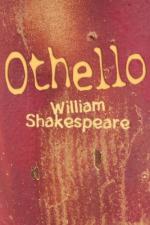|
This section contains 684 words (approx. 2 pages at 400 words per page) |

|
Othello received considerable critical attention from the seventeenth century to the early 2000s. The earliest published critique of the play is that of Thomas Rymer in 1693. Rymer famously notes that the play serves as "a warning to all good Wives that they look well to their Linnen." Rymer seems particularly concerned that Othello does not function properly within the traditions of either comedy or tragedy. He writes, "There is in this Play some burlesk, some humour, and ramble of Comical Wit; some shew, and some Mimickry to divert the spectators: but the tragical part is, plainly, none other than a Bloody Farce, without salt or savour."
Samuel Johnson, the influential eighteenth-century literary critic and essayist also weighed in on Othello. He worried slightly that the strength of Iago's character could evoke admiration from the viewer: "There is always danger lest wickedness conjoined with abilities should steal...
|
This section contains 684 words (approx. 2 pages at 400 words per page) |

|




